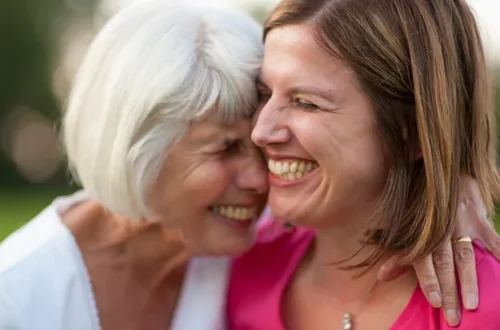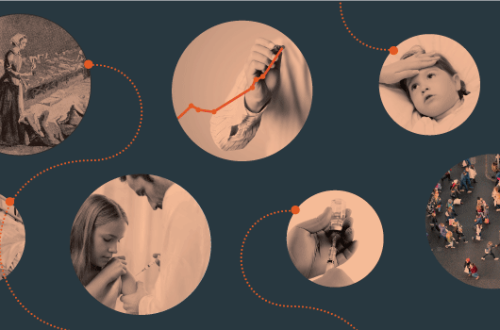INTRODUCTION:
Depression is a chronic feeling of emptiness, sadness, or inability to feel pleasure that may appear to happen for no clear reason. It is distinct from grief and other emotions. Depression is a mental disorder in which a person remains low in energy and always complains about not being active as compared to normal people. This will affect the thinking and eating patterns of humans. This is treatable, but only when people recognize it as soon as possible and go to a medical professional for help. If you are feeling low, that doesn’t mean that you are dealing with depression. If the sadness has remained for the last 6 months, then it falls under the category of depression or any mental disorder. This can lead to many emotional and psychological problems and decrease your ability to function at work and at home.
Symptoms:
Untreated depression raises the chance of harmful behaviors such as drug or alcohol addiction. Furthermore, it can harm relationships, cause problems at work, and make recovering from devastating diseases difficult. Untreated depression worsens over time, causing harm not only to the individual but also to those around him. When someone suffers from depression, it doesn’t take long for the disorder’s symptoms to manifest. Some of the more visible indicators are as follows:
- an incapacity to pay attention
- feeling unworthy
- Hypersomnia or insomnia
- gaining weight
- reduced appetite
- loss of enjoyment or interest in routine activities
- low liveliness
- Suicidal thoughts
- Headaches
LIFETSYLE MODIFICATIONS:
Holistic care promotes complete health. There is no denying that being physically unfit is good for your mental health. There are various advantages to receiving comprehensive mental health care. Among these benefits are the following:
- Allows for relaxation
- It encourages healthy food and exercise to help with coping skills.
- It is straightforward to implement and, in many cases, less expensive than medicine.
Regular Exercise: Exercise causes your brain to release dopamine, a happy hormone. This hormone will make you cheerful and effectively treat your depression symptoms. This hormone may also lessen the risk of anxiety in some people. Moving more will improve the overall health of your heart. Exercise is a low-cost treatment with substantial health advantages. You will be in good mental, physical, and emotional health. Hormones control our mood, so if you want to be cheerful, just exercise and reap the benefits.
• Meditation and yoga: Yoga is a complementary treatment for depression. When you practise yoga, you will fall in love with your body. Every organ will receive adequate oxygen to function properly, which will improve your coping skills.
Avoid certain foods: When you are depressed, healthy eating may include avoiding certain foods and beverages. Consuming processed foods, soft drinks, and sugary snacks high in added sugars, for example, may cause blood sugar levels to fluctuate wildly up and down throughout the day. This could have a negative impact on mood and energy levels. Avoiding alcohol is also a good idea because it might aggravate depression. Caffeine may also worsen depression in certain people. Overeating can also lead to sadness because it makes you feel bad about yourself after eating. These things should be avoided if you want to stay healthy.
• Cognitive-behavioral treatment (CBT): Your depression may be exacerbated by negative thoughts and behaviors, and cognitive-behavioral therapy (CBT) helps you identify the reason behind your depression.
CAUSES:
Depression can strike anyone, including those who appear to be in reasonably good circumstances.
Several things can contribute to depression:
Biochemistry: Variations in specific substances in the brain may lead to depressive symptoms.
Depression can be passed on through families. For example, if one identical twin develops depression, the other has a 70% probability of developing the disorder at some point in their lives.
- Personality: People who have low self-esteem, are quickly overwhelmed by stress, or are gloomy in general appear to be more likely to suffer from depression.
- Environmental factors: Prolonged exposure to violence, neglect, abuse, or poverty may predispose some people to depression.
- Loss of loved ones: When a person loses his or her loved ones and won’t be able to recover from the loss, they experience the symptoms of low energy and sadness. Most people heal with the passage of time, but not all.
- Childhood trauma: Childhood trauma, rape, and other sexual violence can also end you up in depression.
Treatment:
treatment is important because people can be vulnerable after dealing with depression.
Medication: Medications are recommended by health care professionals and help stabilise the mood. People with low moods can find themselves feeling better after taking medication.
Talk therapy:Psychotherapy, often known as “talk therapy,” is sometimes used alone to treat mild depression; however, for moderate to severe depression, psychotherapy is frequently used in conjunction with antidepressant medicines.
Electroconvulsive Therapy:(ECT) is a medical treatment that has traditionally been reserved for individuals suffering from severe, serious depression who have not responded to previous therapies. It consists of a brief electrical stimulation of the brain while the patient is sedated. ECT is normally administered two to three times each week for a total of six to twelve treatments.
CONLCUSION:
People with depression are the most vulnerable people because they always feel lethargic and low in energy. Depression is treatable only when symptoms recognized. Depression can happen at any age in human life. People need to keep a keen eye on symptoms because if they persist for more than 6 months, they can be severe, and patients need to take advantage of their health care potential. Depression often persists in spite of a change of circumstances and causes feelings that are intense, chronic, and not proportional to a person’s circumstances.



